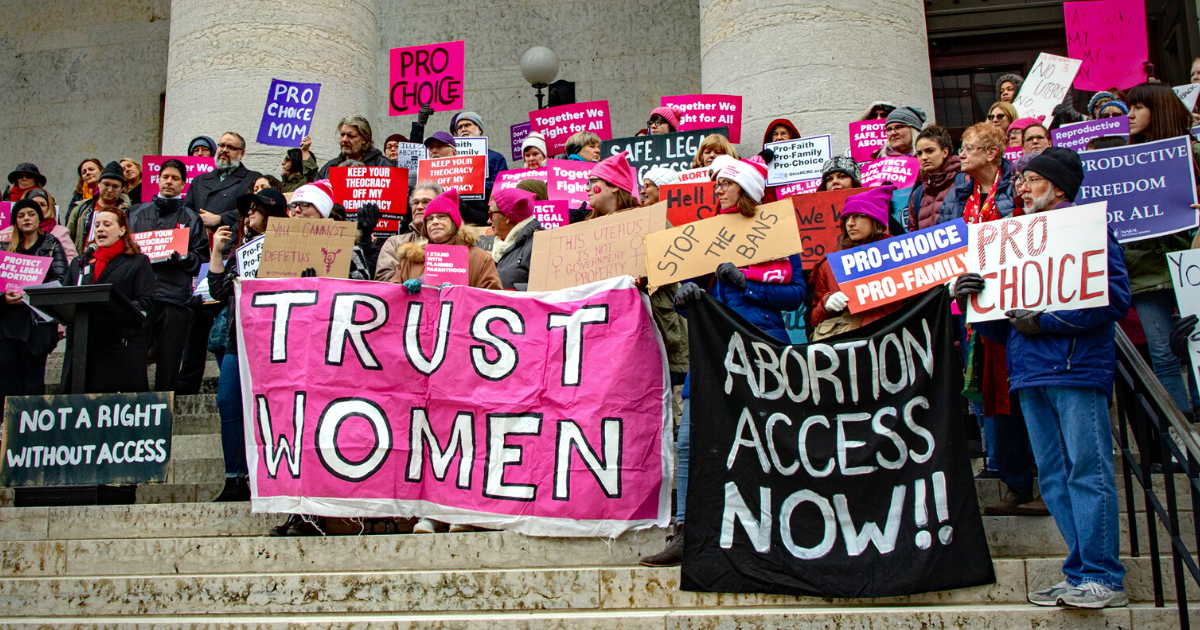From the moment I saw that positive pregnancy test, I knew that I didn’t want to be pregnant. I was a senior in a typical Texas high school, working a part time job at my local McDonalds, who, up to that point, was told how to act, think and believe. But at that point, it didn’t matter because I knew regardless of everyone else’s thoughts, I was going to have an abortion – no matter what.
What I didn’t even remotely understand was the logistical, state-imposed beast I would have to battle in order to get the abortion. I had to figure out how to get to the clinic, how to come up with the money, how to skip school (twice), and how to keep it from my parents. Seeking abortion care in Texas was a frustrating and isolating experience, but I’ve never thought twice about it. The abortion itself was an empowering act. The issue was the ridiculous mandated barriers imposed by a state infamous for the extreme measures it takes to keep power away from its people.
It wasn’t easy to get an abortion in 2012. Today, it’s even harder. Over 95% of Texas’ growth in the past decade came from communities of color, meaning more and more people in Texas are like me — young, queer, Latinx — and less and less like the old, straight, white men who claim to represent us. With the decline of democratic institutions and the death of Roe v. Wade, the right of young people to determine what their lives looks like is being stripped away by people who have no idea what it’s like to be a young, queer, Latinx woman.
Friday’s Supreme Court opinion confirms what reproductive justice activists have been saying for years, but it doesn’t make it any less terrifying. The GOP says they want to put the issue “back in the political process,” implying that decision-making power would be back in the hands of the people. This is a lie and a misdirection. Turning power back to states doesn’t work because states are where voting rights are restricted and democratic institutions have been disintegrated, especially here in Texas. The right to an abortion, like the right to vote, are not to be granted by the state because of political whims — they belong to the people alone.
Due to extreme partisan gerrymandering and Texas’ long history of restrictive voting laws, including the recent Senate Bill 1, voters of color, poor voters, and disabled voters have become more and more disenfranchised under extremist state leadership with no accountability to the public. Right now, two-thirds of Americans want Roe to stay in place, and 78% of Texans support abortion in some form. For young people in particular, abortion rights are a key issue, with 67% of young people ages 18-29 in support of abortion in all or most cases. Even still, Texas politicians are ignoring the needs of their constituents in favor of their own hyper-partisan interests.
If we want to protect abortion rights, then we must prioritize restoring our democratic institutions — and that’s why our work at MOVE Texas is so important. We work to protect the freedom to vote, fight for fair maps, and empower young people to make their voices heard at the ballot box and beyond. We build power with young people because they are the ones who have always been on the frontlines of social change and because they are the ones that have to live in the future our current policies create — and they deserve a say in what that future looks like.
Here in Texas, we’ve been living under one of the most restrictive abortion bans currently in place in the country. From abortion to voting rights, we’ve seen over and over again how we can come together in the face of these attacks on our rights. The attacks keep coming because our collective movement is growing and having a real impact on our world. So, we continue organizing and we keep fighting to restore democratic institutions so our elected officials truly represent us, not extreme ideologies — because every young person deserves the opportunity to determine what their life looks like, just like me.
Original photo: Becker1999 / Wikimedia Commons




